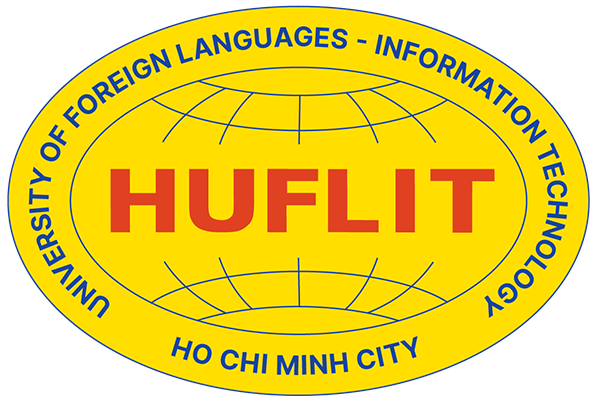-
English Language Studies at HUFLIT: A Major that "Opens the Door" to Numerous Career OpportunitiesThe English Language program at HUFLIT offers students a dual advantage: strong English proficiency and diverse professional expertise, enabling graduates to confidently work in international environments right after graduation.
-
Chinese Language Studies – The Gateway Connecting Gen Z to a Billion-Person EmpireThe Chinese Language program at HUFLIT is the “key” to a wide range of career opportunities, empowering you to become a vital bridge between two closely connected economies.
-
Ngành Trí tuệ nhân tạo – Làm chủ công nghệ, kiến tạo tương lai sốNgành Trí tuệ nhân tạo (AI – Artificial Intelligence) tại HUFLIT đào tạo sinh viên trở thành những chuyên gia phát triển và ứng dụng các hệ thống thông minh, có khả năng mô phỏng và tái tạo trí tuệ con người. Đây là ngành học kết hợp giữa khoa học máy tính, toán học và logic, giúp sinh viên tạo ra các sản phẩm công nghệ tiên tiến như chatbot, robot, hệ thống phân tích dữ liệu lớn, nhận diện khuôn mặt, hay các công cụ ra quyết định tự động.
Professional Skills Seminar: “What You Need to Know about Literary Translation”
On March 24, 2023, the 6th Floor Auditorium at HUFLIT University’s Su Van Hanh Campus was abuzz with excitement as over 200 students majoring in Translation and Interpretation gathered for the professional skills seminar titled “What You Need to Know about Literary Translation.” This event provided a unique and enriching opportunity for students to delve deeper into the art and profession of literary translation.

The seminar featured an inspiring keynote presentation by Prof. Dr. Ha Manh Quan, a distinguished lecturer from the University of Montana and a seasoned expert in translating literary works. Drawing from his vast experience, Prof. Quan shed light on the complexities and nuances of literary translation. His presentation emphasized the importance of preserving the emotional depth and meaning of original works while effectively adapting them to different linguistic and cultural contexts.
Prof. Quan also shared modern approaches to translation, introducing practical techniques such as precise word selection and maintaining the stylistic integrity of the source text. These insights were designed to help students navigate the challenges of literary translation and elevate their professional skills in the field.
In addition to technical knowledge, the seminar broadened students’ understanding of the career potential within literary translation—a field that demands not only linguistic expertise but also a profound understanding of global cultures and literature. Prof. Quan’s talk inspired participants to see literary translation not just as a profession but as a bridge for cultural exchange and preservation.

This seminar not only deepened the students’ appreciation of the literary translation profession but also equipped them with the essential tools and mindset to excel in this demanding yet rewarding field. By hosting such impactful events, HUFLIT continues to reaffirm its commitment to preparing students for dynamic and successful careers in translation and interpretation.
CONTACT INFO
Advising education enrollment






